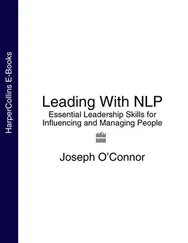John Gray - Children Are from Heaven - Positive Parenting Skills for Raising Cooperative, Confident, and Compassionate Children
Здесь есть возможность читать онлайн «John Gray - Children Are from Heaven - Positive Parenting Skills for Raising Cooperative, Confident, and Compassionate Children» весь текст электронной книги совершенно бесплатно (целиком полную версию без сокращений). В некоторых случаях можно слушать аудио, скачать через торрент в формате fb2 и присутствует краткое содержание. Год выпуска: 1999, ISBN: 1999, Издательство: HarperCollins e-books, Жанр: psy_childs, sci_pedagogy, Психология, на английском языке. Описание произведения, (предисловие) а так же отзывы посетителей доступны на портале библиотеки ЛибКат.
- Название:Children Are from Heaven: Positive Parenting Skills for Raising Cooperative, Confident, and Compassionate Children
- Автор:
- Издательство:HarperCollins e-books
- Жанр:
- Год:1999
- ISBN:978-0-06-133886-1
- Рейтинг книги:4 / 5. Голосов: 1
-
Избранное:Добавить в избранное
- Отзывы:
-
Ваша оценка:
- 80
- 1
- 2
- 3
- 4
- 5
Children Are from Heaven: Positive Parenting Skills for Raising Cooperative, Confident, and Compassionate Children: краткое содержание, описание и аннотация
Предлагаем к чтению аннотацию, описание, краткое содержание или предисловие (зависит от того, что написал сам автор книги «Children Are from Heaven: Positive Parenting Skills for Raising Cooperative, Confident, and Compassionate Children»). Если вы не нашли необходимую информацию о книге — напишите в комментариях, мы постараемся отыскать её.
Children Are from Heaven: Positive Parenting Skills for Raising Cooperative, Confident, and Compassionate Children — читать онлайн бесплатно полную книгу (весь текст) целиком
Ниже представлен текст книги, разбитый по страницам. Система сохранения места последней прочитанной страницы, позволяет с удобством читать онлайн бесплатно книгу «Children Are from Heaven: Positive Parenting Skills for Raising Cooperative, Confident, and Compassionate Children», без необходимости каждый раз заново искать на чём Вы остановились. Поставьте закладку, и сможете в любой момент перейти на страницу, на которой закончили чтение.
Интервал:
Закладка:
Besides being somewhat logical or related, a reward needs to be reasonable. If you are asking a child to do something you know they don’t like doing, then it is reasonable to give a bigger reward. For example, if your child doesn’t like certain guests that you like, then work out a deal such as this: “I know you don’t like these people, but they are my friends. If you keep a friendly and polite attitude, I will do something really special for you. I will take you to the zoo next weekend.” In this example, you give a big reward, because you are asking your child to do something out of the usual routine of life, and you know it is difficult for your child to do.
Children are more cooperative if we recognize what is difficult for them and give a little more because they cooperated. Whenever a recurring pattern of resistance is discovered, the best solution is to prepare in advance for it next time with a big reward.
REWARDING TEENAGERS
Rewards need to be age appropriate. Teenagers no longer need personal time as much, but they have other new needs.
They need money and help. Once a preteen or teen is making and spending money, then it also can be used to reward.
Ideally, it’s good not to use it too much of the time, but when used sparingly, it makes a big difference.
If a teen is resisting spending time in a situation, you could simply offer to pay them double their allowance or what they get paid for a day’s work. If extra money in not available, then a parent can offer to drive the teen somewhere or help with one of their chores.
Some parents have found it’s helpful to give their children rewards for improving their grades. Certainly, all children don’t need this motivation. Better grades may be rewarded with more money, or they may be rewarded with extra privileges. Although privileges should be given when a teen earns the trust to have greater freedom, better grades could be a way to earn that trust. For example, by making better grades, a teen proves that he or she is more responsible, and therefore trustworthy and capable of staying out later.
DEALING WITH A DEMANDING CHILD IN PUBLIC
If your child throws a tantrum in a public place, recognize that you don’t have the time to give the child what he or she needs on the spot to be more cooperative. This is when having your child’s favorite candy bar handy is very helpful.
You may not be able to listen with empathy to their feelings, but you can give a reward. You can remedy the situation by quickly offering your children a reward for cooperating. If you don’t have something up your sleeve or in your purse, rather than resist your child and make a big scene, recognize what he or she wants and if possible, give it to the child.
Even though this is placating the child, if only done occasionally, it is fine. It should, however, be a warning sign that you need to be tougher at home and not placate so much.
When children are uncooperative in public it
is a warning sign to be tougher at home and
not placate so much.
Next time prepare your children by letting him know that you know it is more difficult to be cooperative in a grocery store check-out line. Let him know that you don’t like waiting in long lines either. Then make a deal, say something like this, “If you cooperate with Mommy at the grocery store, then we will have time to come home and have a bowl of your favorite cereal.” At the store, buy a box of that cereal to reinforce the deal. Throughout the shopping, let your children know how good they are doing and that soon they will be home eating a bowl of their favorite cereal.
REWARDS ARE LIKE DESSERT
When you offer children a reward, you are helping them once again connect to the part of themselves that wants to help. A reward doesn’t make them cooperate. Instead, it is another way to nurture a child’s natural motivation. Getting rewards or perks in life is like dessert. If all you ate was dessert, then you wouldn’t get the nutrients you need from the meal. One of the reasons we give desserts at the end of a meal is that desserts alone will satisfy your hunger, and you will not be motivated to eat the foods that are good for your health. In a similar way, by relying only on rewards, children will lose their appetite to cooperate.
By relying only on rewards children will lose
their appetite to cooperate.
When an adult works only for the rewards then something is missing. They work only to get what they want and forget their underlying desire is to be of service. They don’t care about doing a really good job. They only do what is required to get by. This is unhealthy.
On the other hand, it is just as unhealthy to be of service and not think about any reward or payment when your family is at home and in need. Successful adults think of both themselves and others. They care about making a difference, and they make sure they get what they need and want as well. Appropriately rewarding our children prepares them to be successful adults.
Appropriately rewarding our children
prepares them to think of both themselves
and others.
It is important for our children to learn that life is a process of give and take. If you give, then you get. To get more, you give more. Each time you ask your children to give a little more and promise to give them a little more, they are learning important lessons about life. They are learning how to make deals and negotiate. They are learning that they deserve more when they give more, and they learn to put off their immediate want in favor of some greater want in the future.
LEARNING FROM NATURAL CONSEQUENCES
For many parents, there is an implied assumption that if children don’t cooperate then they are bad. They believe that good children should just automatically cooperate. Positive parenting recognizes that when children don’t cooperate they are not bad, they are just not getting what they need. At times of resistance, a parent is required either to give them what they need or use rewards to motivate them in that moment.
Some parents mistakenly believe that good
children should just automatically cooperate.
Some parenting approaches mistakenly recommend avoiding resistance by letting children do what they want and learn from the natural consequences. For example, if a child resists putting on his coat, let him go out in the cold without his coat and get sick. Then he will learn his lesson.
This thinking is not correct. It just teaches the child that he can’t rely on his parents for guidance.
Just as I was writing this passage my wife came in to share a relevant example. Lauren (age thirteen) had left her school paper in the computer at home. She had been working hard to finish her project on time and was very proud.
Bonnie was going to bring this paper to her so she wouldn’t lose points for turning it in late.
Some parents would say she needed to be taught the consequence of forgetting. She would not get the joy of turning her paper in on time. She would then learn from her loss.
This is just old fear-based thinking. Instead, why not learn from her gain? Why not learn that her parents care, and they will do what they can to help? If your spouse forgot something, you would want to help him or her. You would do what you could. Our children need this support just as much or even more. Learning that they will get support from their family is much more important than learning how it feels to lose points on a paper you worked hard to finish on time.
The school of natural consequences would say this was an opportune time to teach her what happens when she forgets things so that she will remember better in the future. It is true that she will be afraid of forgetting in the future, but fear is not really the best motivator. One can remember to bring something without fear. Positive parenting doesn’t require fear to motivate children to remember. The experience of success also motivates children to remember.
Читать дальшеИнтервал:
Закладка:
Похожие книги на «Children Are from Heaven: Positive Parenting Skills for Raising Cooperative, Confident, and Compassionate Children»
Представляем Вашему вниманию похожие книги на «Children Are from Heaven: Positive Parenting Skills for Raising Cooperative, Confident, and Compassionate Children» списком для выбора. Мы отобрали схожую по названию и смыслу литературу в надежде предоставить читателям больше вариантов отыскать новые, интересные, ещё непрочитанные произведения.
Обсуждение, отзывы о книге «Children Are from Heaven: Positive Parenting Skills for Raising Cooperative, Confident, and Compassionate Children» и просто собственные мнения читателей. Оставьте ваши комментарии, напишите, что Вы думаете о произведении, его смысле или главных героях. Укажите что конкретно понравилось, а что нет, и почему Вы так считаете.












